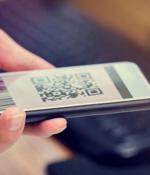Security News

The FBI Internet Crime Complaint Center has warned of a massive increase in sextortion complaints since the start of 2021, resulting in total financial losses of more than $8 million until the end of July. The federal agency received over 16,000 sextortion complaints until July 31, almost half of them coming from victims in the 20-39 age group.

The FBI Internet Crime Complaint Center has warned of a massive increase in sextortion complaints since the start of 2021, resulting in total financial losses of more than $8 million until the end of July. The federal agency received over 16,000 sextortion complaints until July 31, almost half of them coming from victims in the 20-39 age group.

The Texas Bankers Association documented at least 139 chain gang attacks against Texas financial institutions in the year ending November 2020. Santor said the chain gang attacks have spread to other states, and that in the year ending June 2021 Travelers saw a 257 percent increase in the number of insurance claims related to ATM smash-and-grabs.

LogDNA unveiled Spike Protection to give companies more control over fluctuations in their data and spend. LogDNA Spike Protection gives DevOps teams the necessary tools to understand and manage increases through Index Rate Alerting and Usage Quotas.

"Early in the pandemic, restaurants were using QR codes as menus or payment options, but as the pandemic continued throughout 2020, consumers used QR codes more frequently for practical things like visiting a doctor's office or picking up a prescription," according to Ivanti's report, issued on Wednesday. "Meanwhile, social activities like dining out or enjoying a drink at a bar saw QR code usage decrease in that six-month period. Even offices and places of work saw an increase in usage going from 11 percent to 14 percent, emphasizing the shift in how QR codes have been used during the pandemic."

According to Gartner, cloud adoption will only accelerate as we move into 2021, with cloud services revenue climbing more than 19%. However, all of this change creates a totally different set of work streams and security challenges. Organizations must assess what controls cloud services providers offer in order to understand the security risks and challenges.

Cybercriminals are ready for tax season with new malware designed to exfiltrate Quickbooks data and post it on the internet, according to a new report from ThreatLocker. "When Quickbooks is on a file server, you are required to use a Quickbooks Database Server Manager, the report said."When carrying out a repair, file permissions are reset and the 'everyone' group is added to the permission.

Researchers from GreatHorn report they have observed a nearly 6,000-percent jump in attacks using "Malformed URL prefixes" to evade protections and deliver phishing emails that look legit. Typosquatting is a common phishing email tactic where everyday business names are mispelled, like "Amozon.com" - to try and trick unobservant users into clicking.

When it comes to paying the ransom in a ransomware attack, demands are on the rise. Pandemic-themed phishing scams, a sustained onslaught of ransomware attacks and the rise of a remote global workforce all colluded to make the last 12 months particularly brutal for information-security professionals, according to the report.

In a series of posts on Twitter, Microsoft on Tuesday warned of an uptick in gift card-themed business email compromise attacks targeting K-12 school teachers by impersonating their colleagues. "We detected a recent spike in business email compromise attacks soliciting gift cards primarily targeting K-12 school teachers. Attackers impersonate colleagues or school officials to ask recipients to purchase various gift cards," Microsoft Security Intelligence warned.